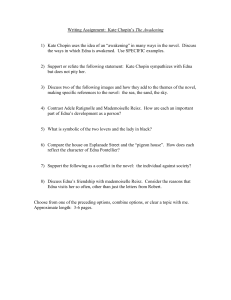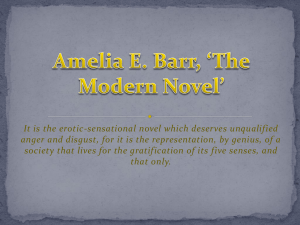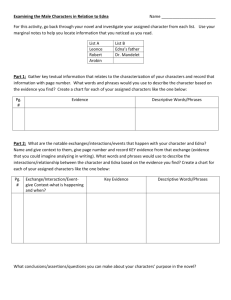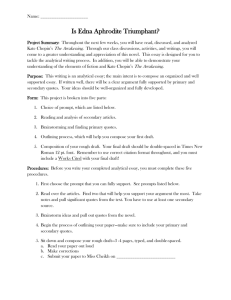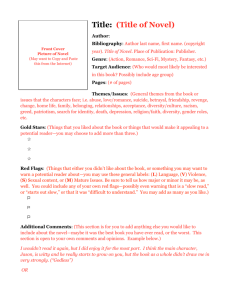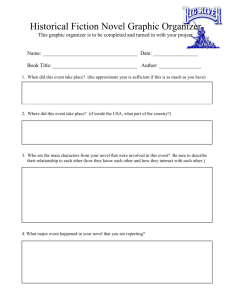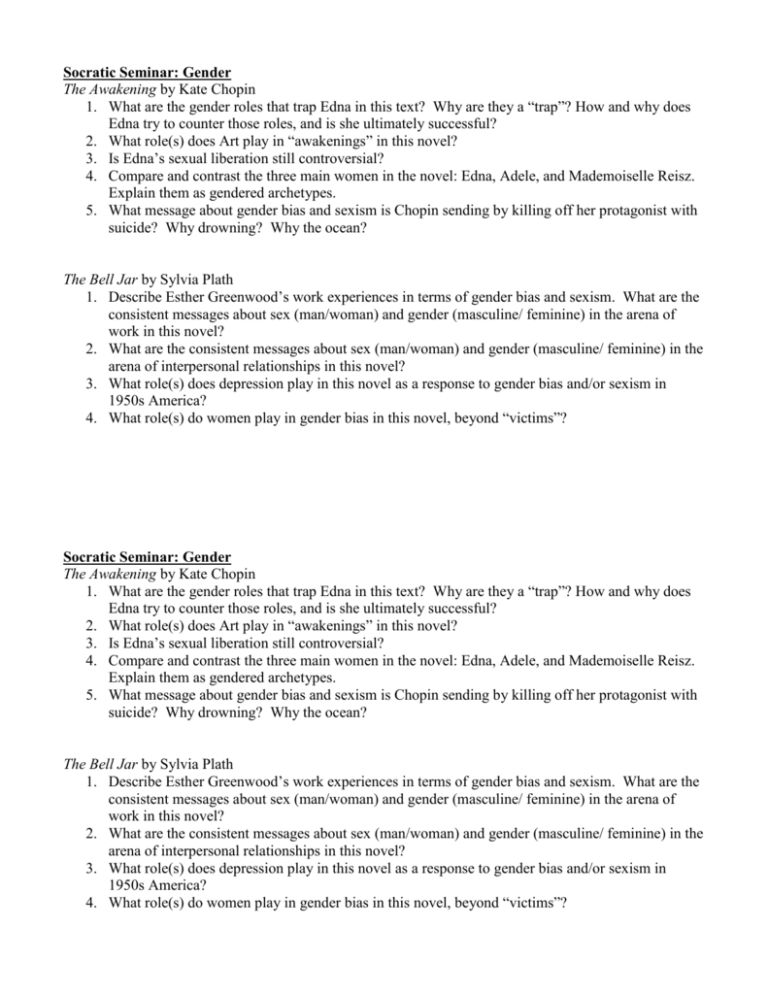
Socratic Seminar: Gender
The Awakening by Kate Chopin
1. What are the gender roles that trap Edna in this text? Why are they a “trap”? How and why does
Edna try to counter those roles, and is she ultimately successful?
2. What role(s) does Art play in “awakenings” in this novel?
3. Is Edna’s sexual liberation still controversial?
4. Compare and contrast the three main women in the novel: Edna, Adele, and Mademoiselle Reisz.
Explain them as gendered archetypes.
5. What message about gender bias and sexism is Chopin sending by killing off her protagonist with
suicide? Why drowning? Why the ocean?
The Bell Jar by Sylvia Plath
1. Describe Esther Greenwood’s work experiences in terms of gender bias and sexism. What are the
consistent messages about sex (man/woman) and gender (masculine/ feminine) in the arena of
work in this novel?
2. What are the consistent messages about sex (man/woman) and gender (masculine/ feminine) in the
arena of interpersonal relationships in this novel?
3. What role(s) does depression play in this novel as a response to gender bias and/or sexism in
1950s America?
4. What role(s) do women play in gender bias in this novel, beyond “victims”?
Socratic Seminar: Gender
The Awakening by Kate Chopin
1. What are the gender roles that trap Edna in this text? Why are they a “trap”? How and why does
Edna try to counter those roles, and is she ultimately successful?
2. What role(s) does Art play in “awakenings” in this novel?
3. Is Edna’s sexual liberation still controversial?
4. Compare and contrast the three main women in the novel: Edna, Adele, and Mademoiselle Reisz.
Explain them as gendered archetypes.
5. What message about gender bias and sexism is Chopin sending by killing off her protagonist with
suicide? Why drowning? Why the ocean?
The Bell Jar by Sylvia Plath
1. Describe Esther Greenwood’s work experiences in terms of gender bias and sexism. What are the
consistent messages about sex (man/woman) and gender (masculine/ feminine) in the arena of
work in this novel?
2. What are the consistent messages about sex (man/woman) and gender (masculine/ feminine) in the
arena of interpersonal relationships in this novel?
3. What role(s) does depression play in this novel as a response to gender bias and/or sexism in
1950s America?
4. What role(s) do women play in gender bias in this novel, beyond “victims”?

